U.S. Army Vietnam War Lansing, IL Flight date: 08/18/21
By Frank Hauenschild, Honor Flight Chicago Veteran Interview Volunteer
By the end of 1966, U.S. Armed ground forces in Vietnam reached 385,000 personnel with an additional 60,000 sailors stationed offshore. The estimated military service inductions in 1966 reached 382,010 men. 1966 was not a good year for young men graduating high school either, especially those on the south side of Chicago, where jobs were also scarce for military aged men.
Bill Sonntag resided in his Roseland home with his parents and six siblings. Upon graduation from Fenger High School in 1966, he was obligated to start seeking employment. Bill related that trying to find work was tough. Employers were hesitant to hire young men of draft age since they could be drafted at any time following hiring. Bill’s first job was at the Solo Cup factory in Chicago. Hoping for a better job, Bill had a friend that steered him to the Ford Motor Company factory on Torrence Avenue. After completing the application process, he was hired on as a trainee. He looked forward to being employed by Ford with good pay, insurance benefits and being a member of the union. Unfortunately, his employment was destined to be postponed for a couple of years.
Waiting for Bill when he arrived home after being hired was his official “greeting” letter from the Selective Service System with his Order to Report for Induction. His first call was to his union representative who reassured him that his job will be there when he returns home from the service. Bill commenced his Army Basic Training at Fort Campbell on the Kentucky-Tennessee border. Bill recalled his Basic Training as walking (a lot), marching (a lot) , P/T (a lot) and full gear guided tours of the countryside. As a towering young man at 6’1” Bill would usually be at the head of his unit’s marchesleading with his long strides. Bill felt sorry for the shorter men in his unit as they would need to take longer strides to keep up with those in the front leading the march. After completing his Basic Training, Bill reported to Fort Sill in Oklahoma.
Arriving at Fort Sill, Bill received his Military Occupational Specialty (MOS) in radio repair. His thirteen weeks of intensive training consisted of upkeep and repair of existing radio equipment, but he was also trained on the newly developed FM and Modular radios. These newly developed radios were compact units which were placed in vehicles and could be worn by individual troops in the field. Completing his radio training, Bill was then sent to Fort Benning.
Fort Benning was considered a transitional waypoint for Army personnel. Bill’s assignment as a company clerk was a surprising one since he had no typing skills whatsoever. He managed to get by hunting and pecking the keyboard to complete reports and training schedules and was noticed by a few of his superiors. Bill was selected to attend the Noncommissioned Officer Academy at Fort McClellan, Alabama. Successfully completing his Officer Training on July 21, 1967 and receiving a promotion to Sergeant E-5, Bill returned to Fort Benning. From Fort Benning, Bill was ordered to report to Vietnam. Boarding a troop chartered plane, Bill’s first stop was in Alaska, then it was on to Bien Hoa Air Base which was about twenty miles East of Saigon. From the Air Base, Bill reported to Bearcat Camp which was to be Bill’s base camp for his tour in Vietnam.
With Bearcat as his home base, Bill and his unit would travel to various parts of Vietnam in their armored personnel carrier. Upon arriving at their assigned location, they would make camp which entailed digging in, placing sandbags and unloading supplies. A typical out camp for Bill’s unit would consist of about five mechanized infantry units consisting of about 300 soldiers. Being a Tactical Commander Chief, Bill would be in command of his squad in repairing or replacing radios in personnel carriers, jeeps and for front line combat troops.
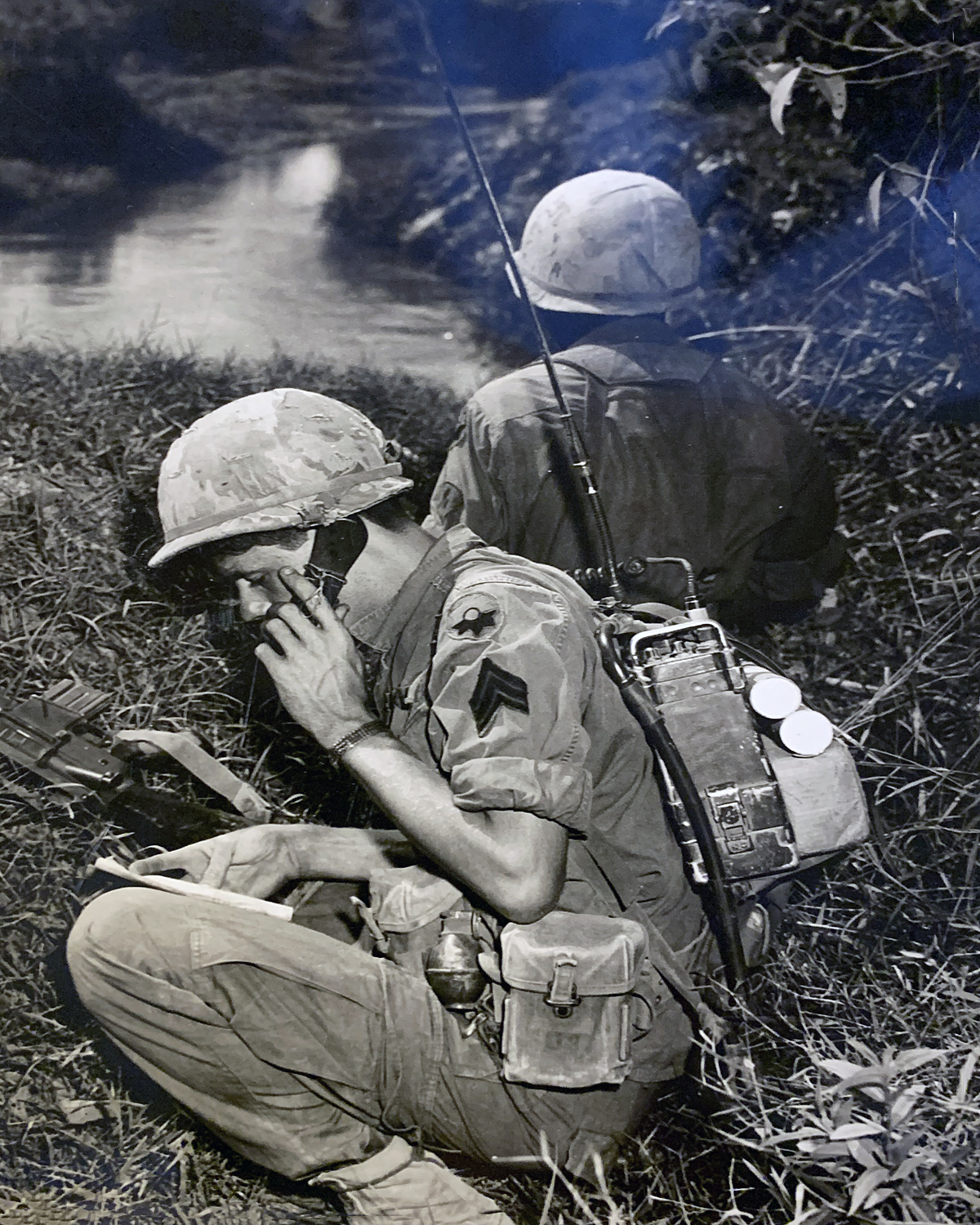
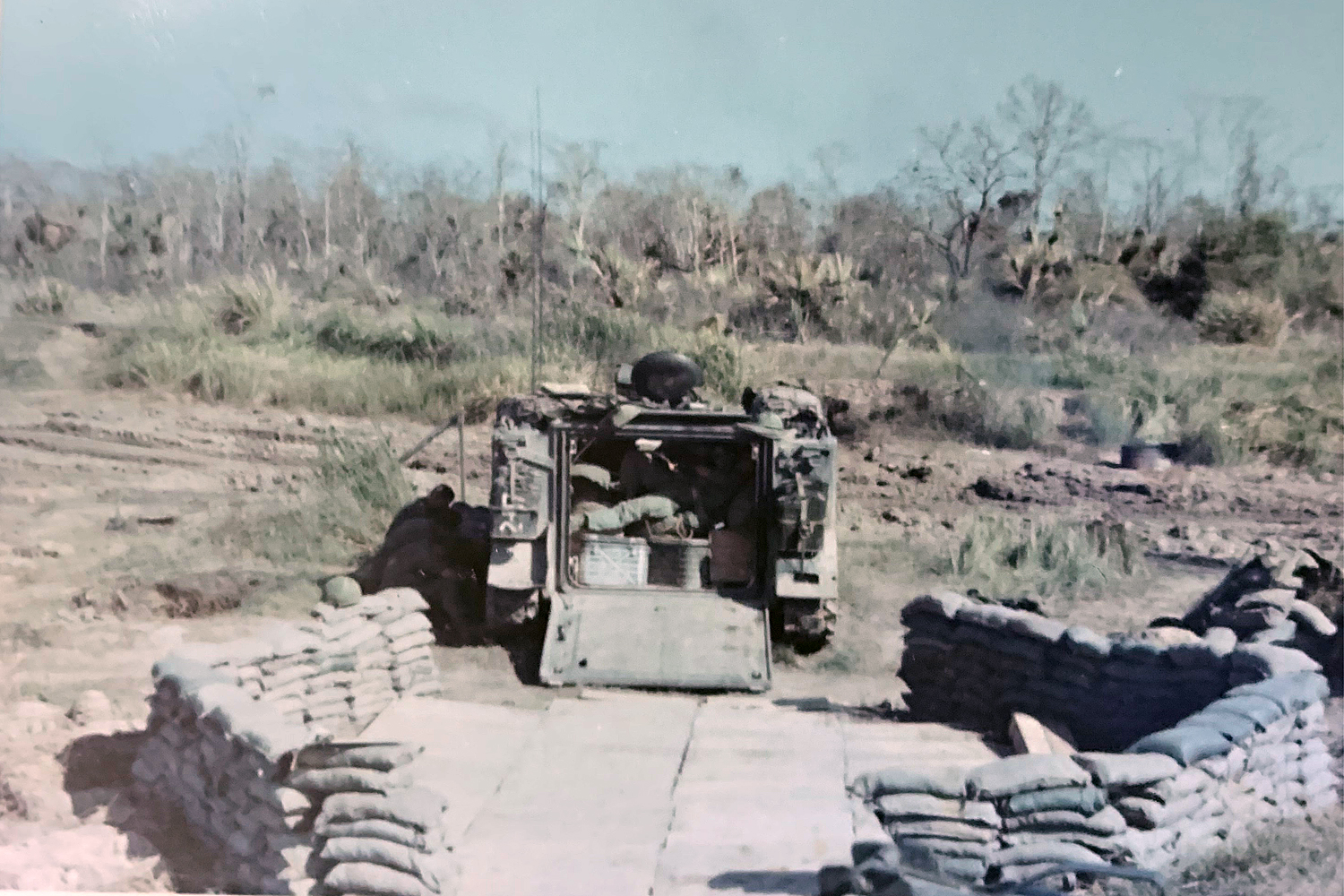
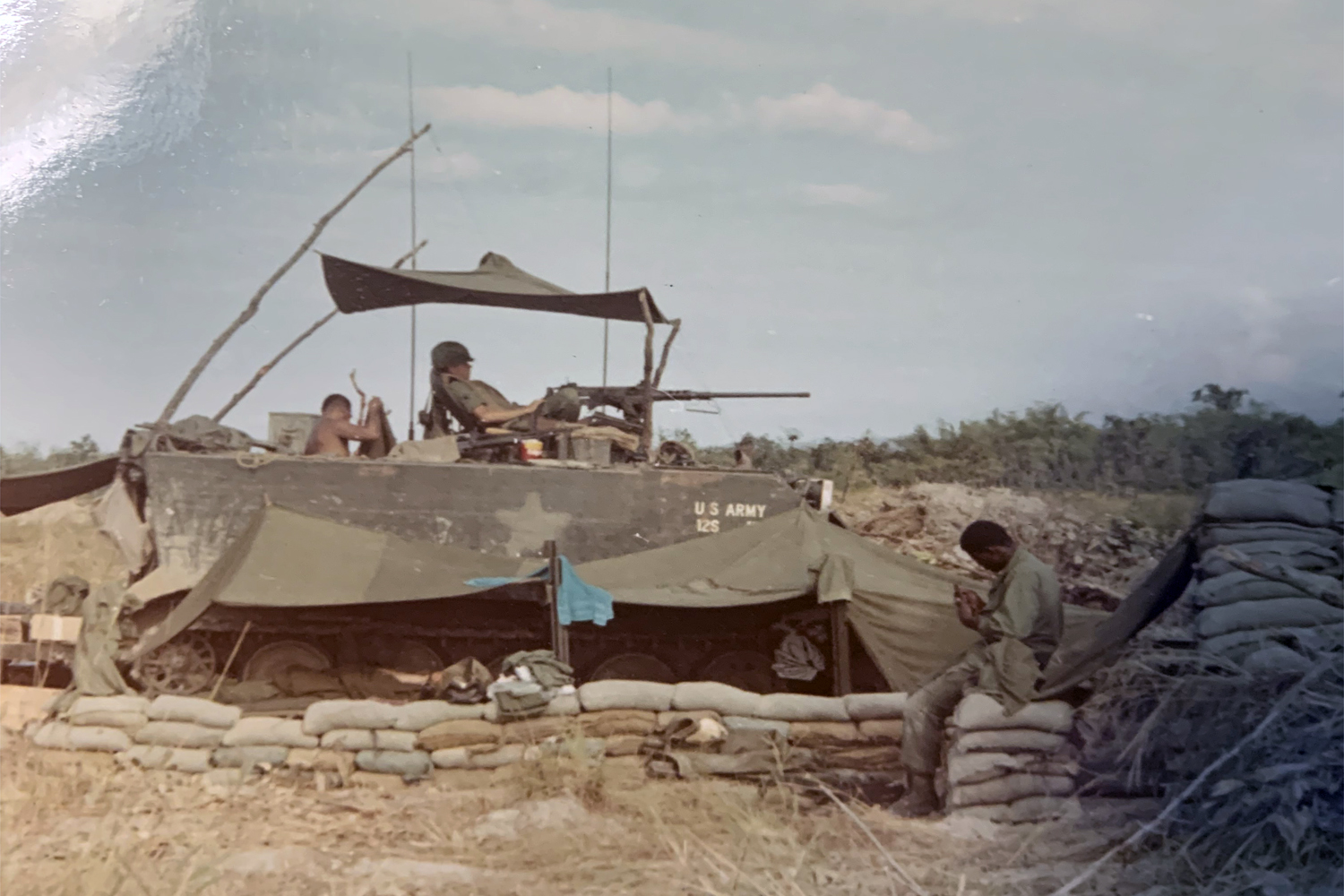
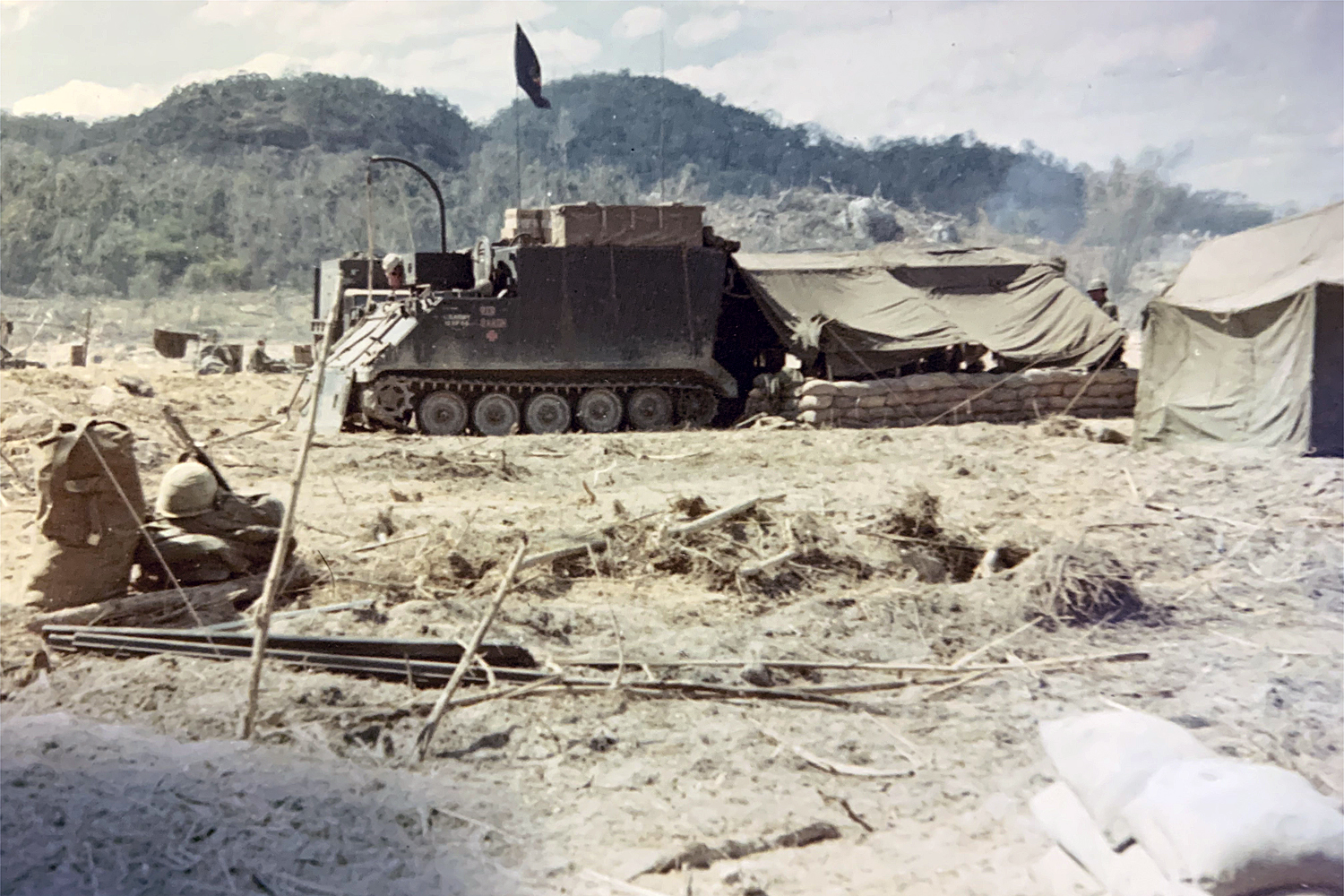
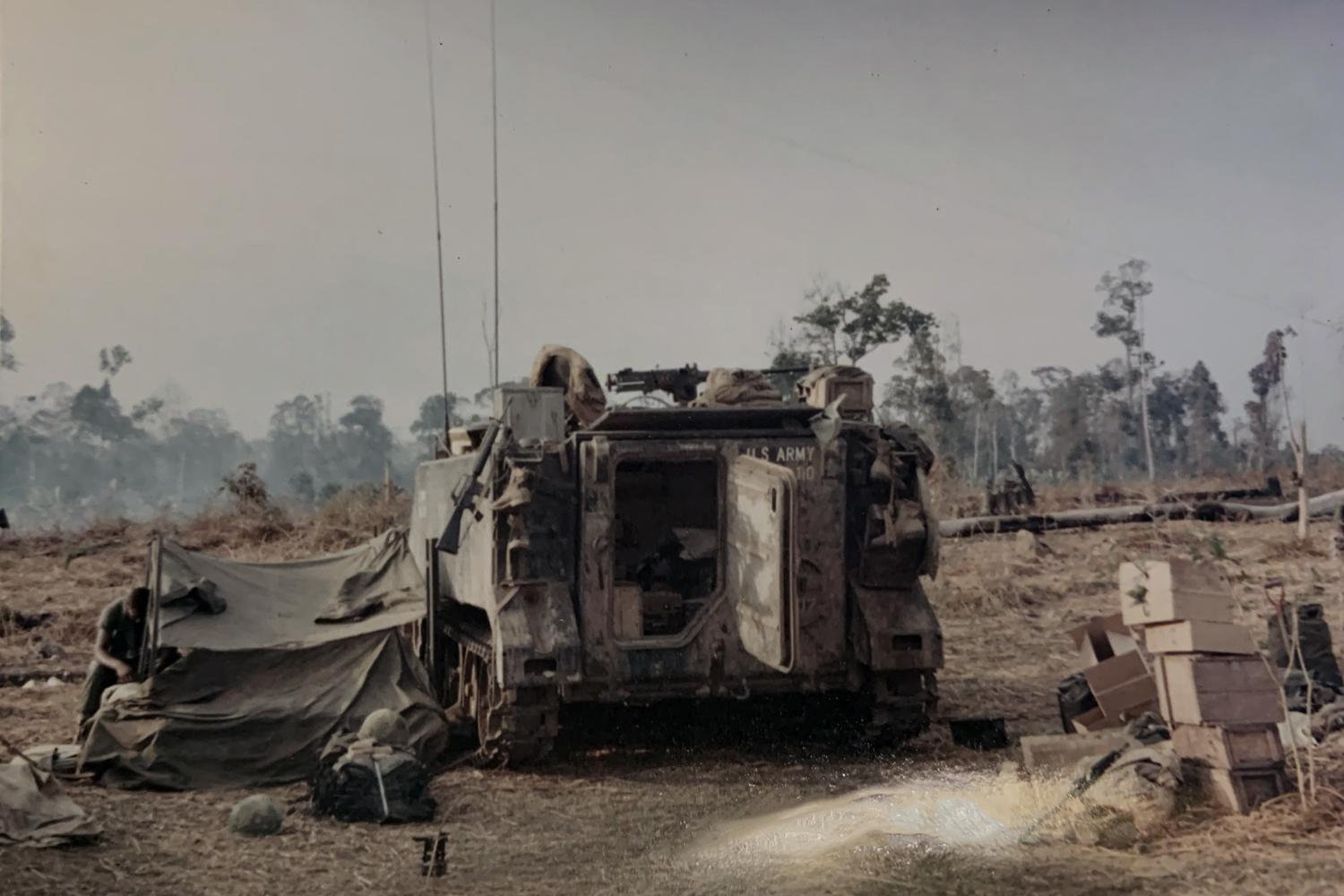
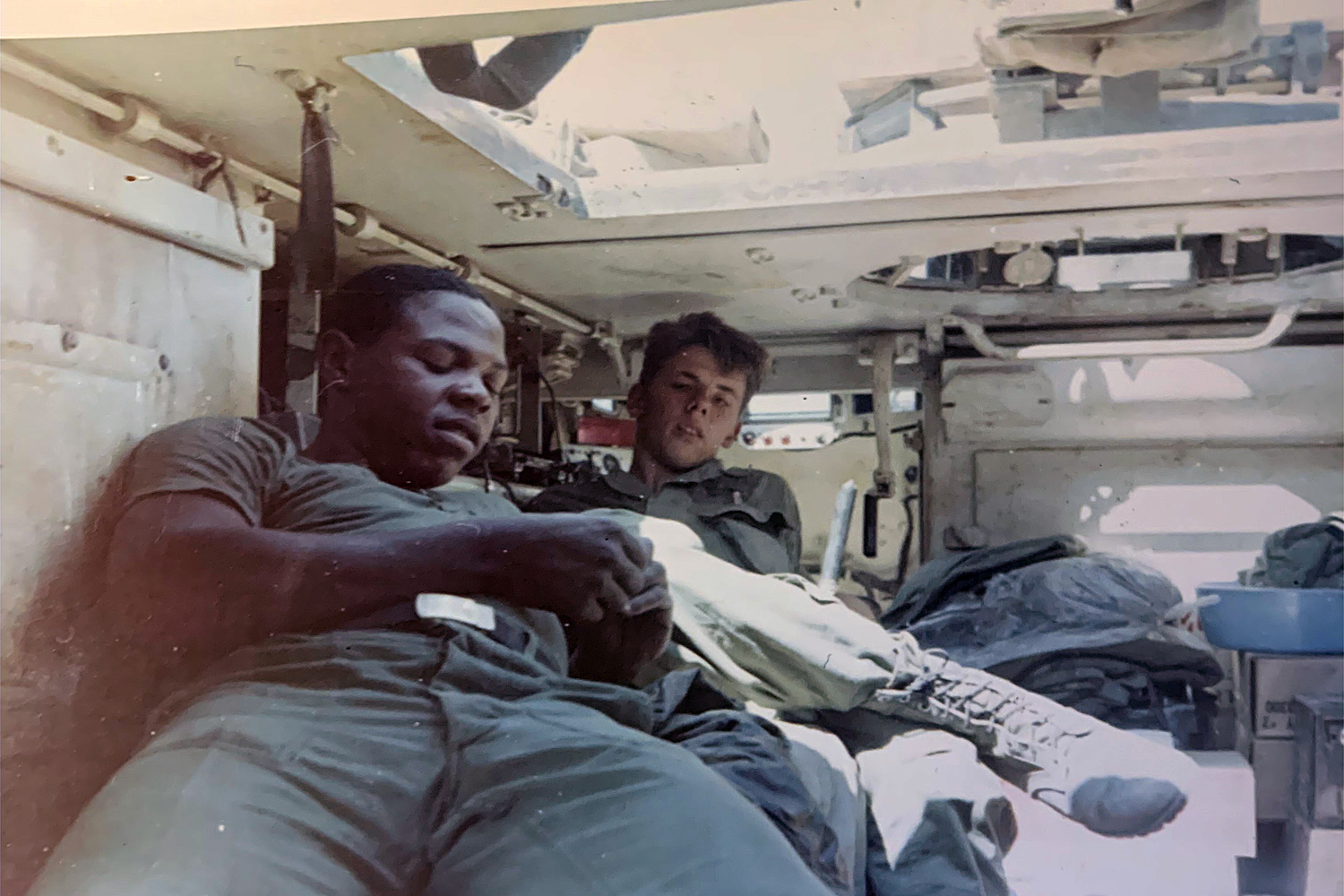
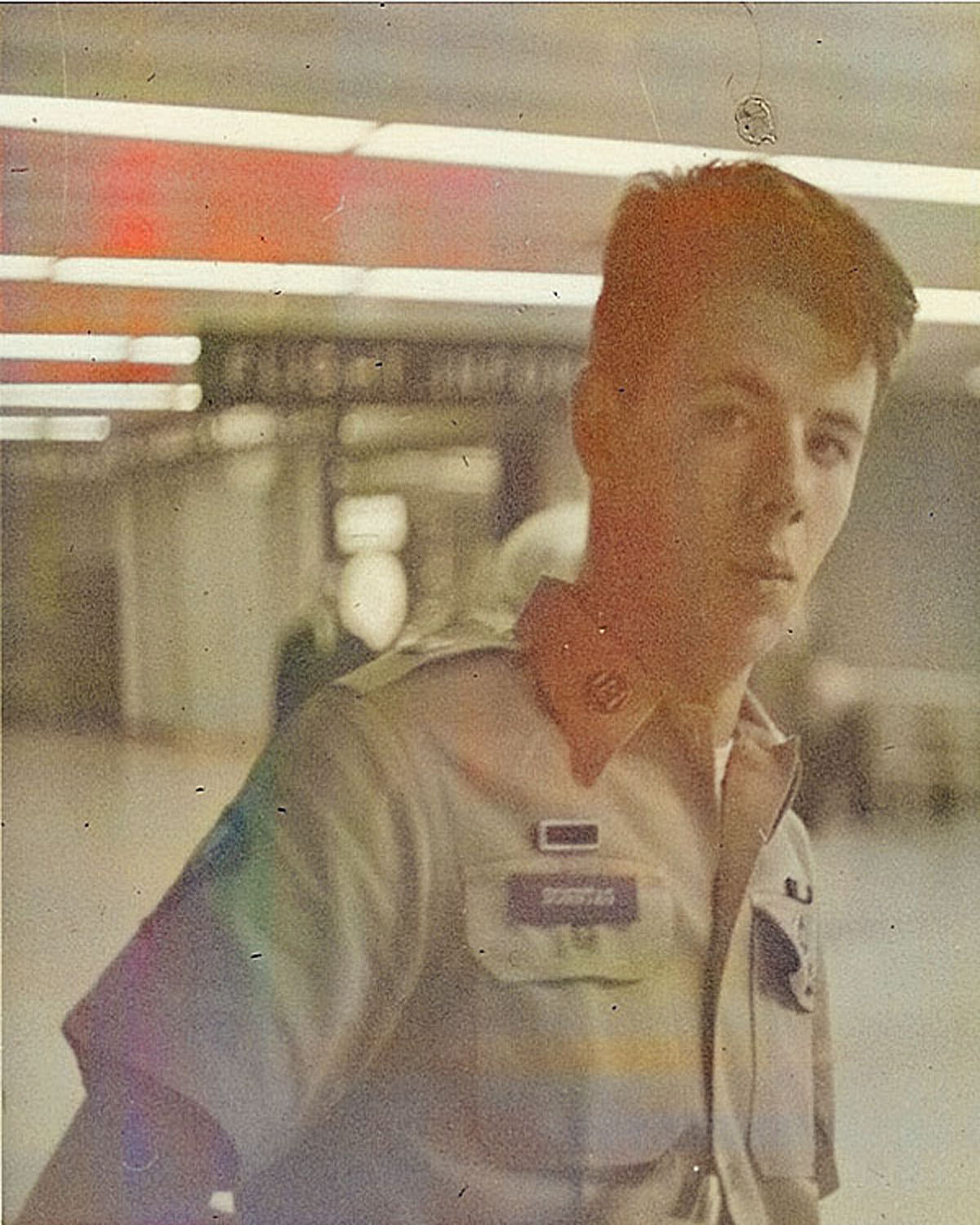
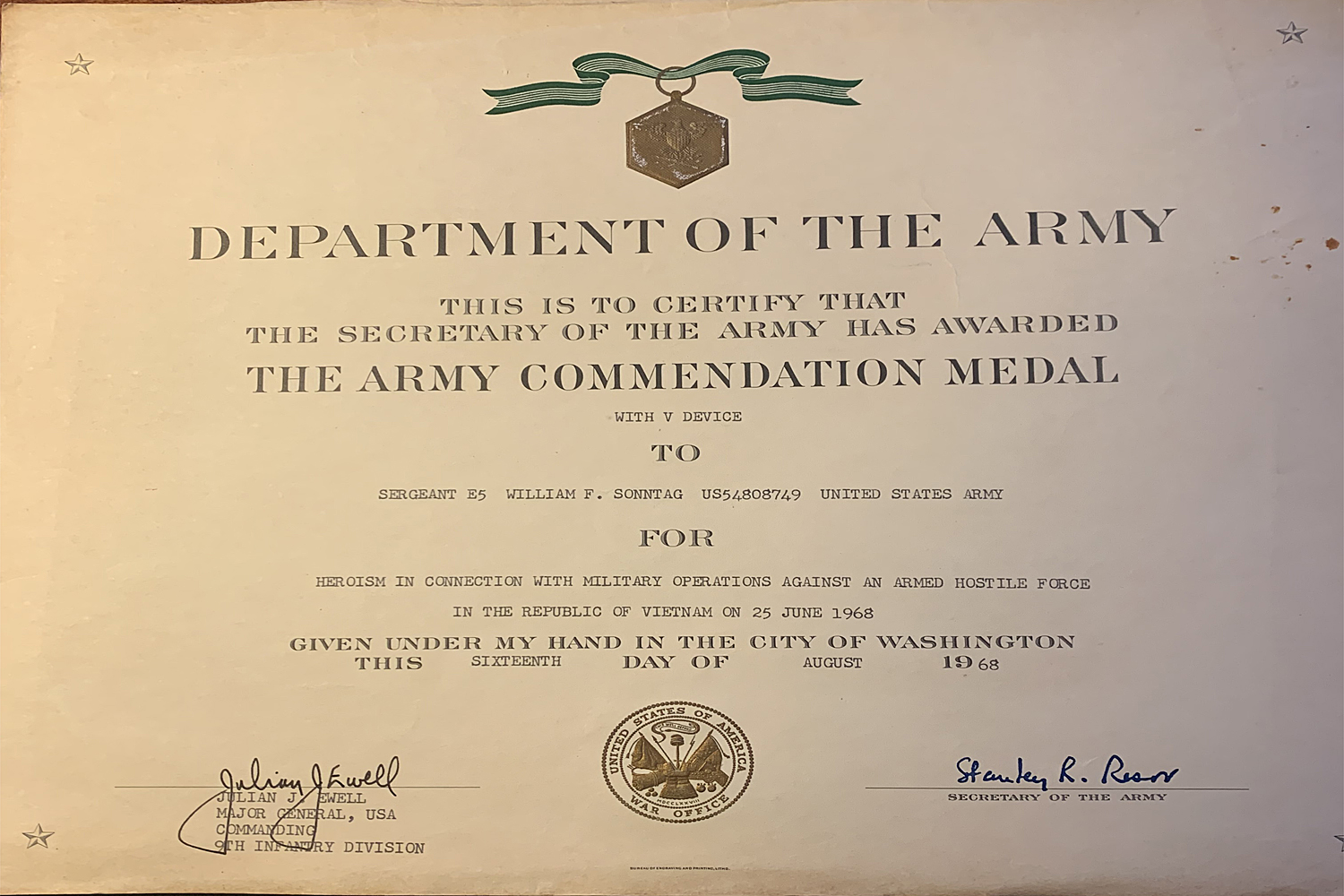
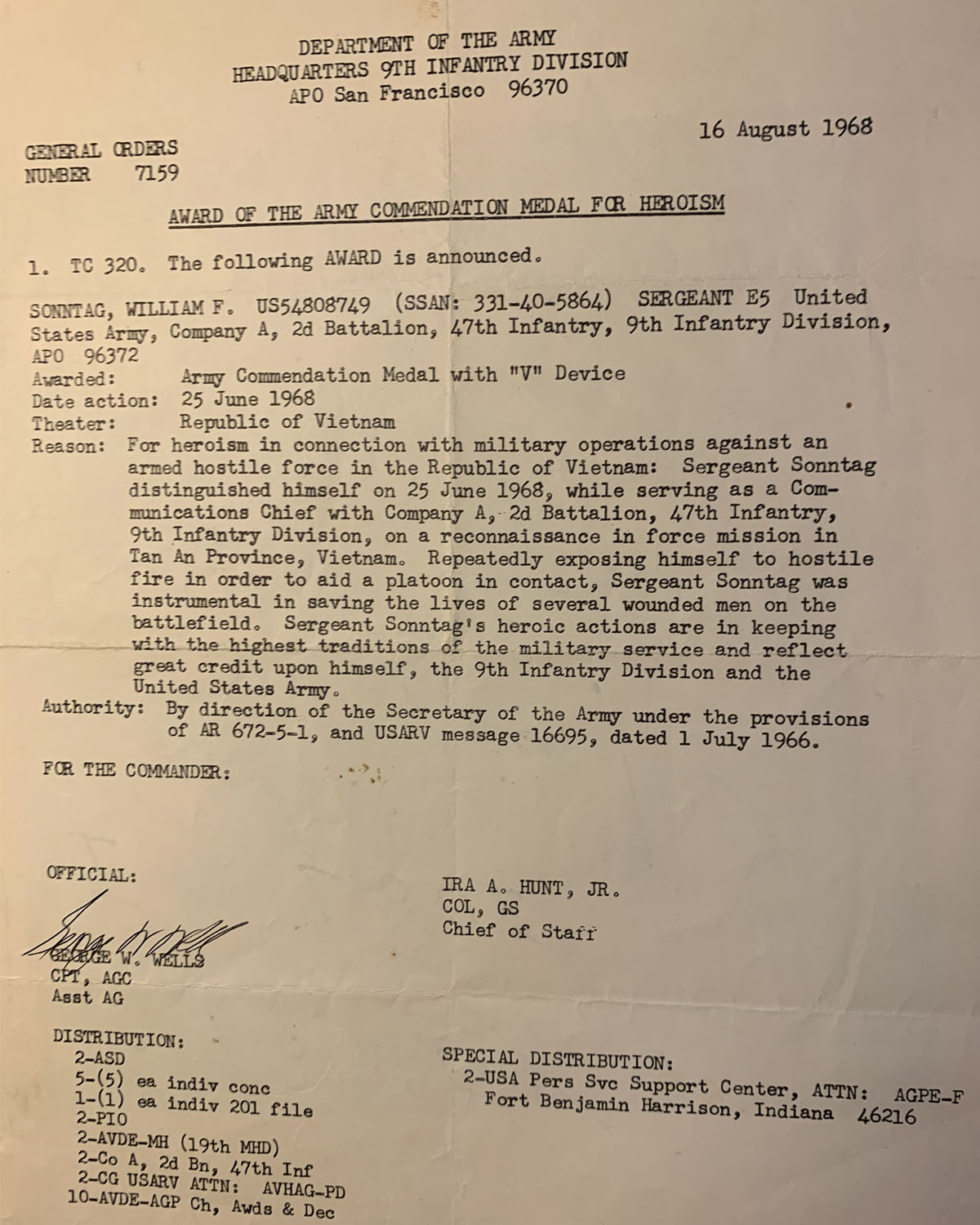
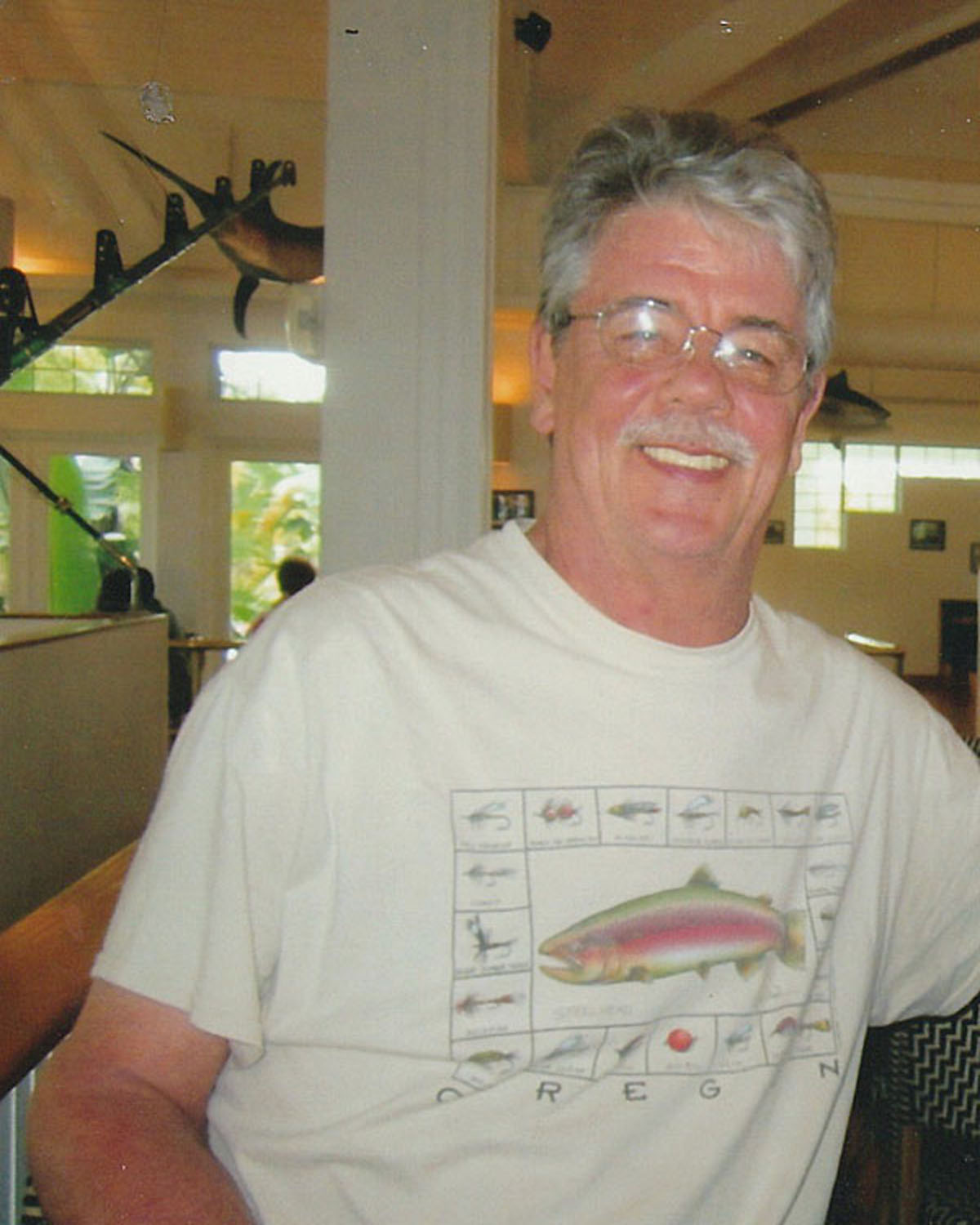
In describing the various locations he would be assigned to, Bill related that often the areas would be in the jungle or digging in at an old French plantation. They would spend a month or more before returning to Bearcat, hopefully before the North Vietnamese Army and Viet Cong troops would learn of their location. Bill related that his camps were consistently being attacked by the enemy, usually by mortar rounds and typically in the mornings. From the out camps, he would often go on patrols with other troops. While on patrols to take care of radios, he was not excused from combat responsibilities. When out on patrol, he recalled how careful they had to be when in the area of the enemy. Bill recalled that “Charlie” did not have the best of equipment, but they were sneaky and resourceful with what they could put their hands on. You had to always be extra careful as they would set up trip wires to explosive devices; there were many elaborate underground tunnel systems in which the troops had to be aware of in the field.
Bill recalled the Tet Offensive which occurred at the end of January, 1968. Tet was a major offensive maneuver by the Viet Cong and the NVA that targeted South Vietnamese and U.S. targets. Bill and others from Bearcat, were sent to Saigon to quell any invasions or future attacks upon the city. At the end of the Tet Offensive, he returned to Bearcat where he would prepare for his next field assignment.
Being in the field after Tet, Bill recalled a specific combat event while on patrol in the Tan An Province on June 25, 1968. On that day, the Charlie platoon was attacked and ended up being trapped near a berm in a rice paddy field. Bill, with his personnel being attacked, mounted a 50 Caliber machine gun on an armored personnel carrier and provided suppressing fire in order that troops, including wounded personnel, could be removed from that position. While providing covering fire, Bill was also being fired upon by the enemy. He related that the 1 ½ hour firefight seemed to last a lifetime. For his actions on that day, Bill received the Army Commendation Medal for Heroism with “V” Device on his commendation on August 16, 1968. The “V” device would signify heroism during combat.
Bill described Vietnam at that time as a third-world country with little industry and citizens trying to get by, typically by farming. His experience was not in the picturesque areas, but rather in the dry and dusty areas of South Vietnam after the monsoon season rains would stop. He related that in general, the Vietnamese people were poor, but relatively nice as a whole. Any contact he would have with the Vietnamese people was with the help of interpreters who often traveled with U.S. troops.
About six months into his tour of Vietnam, Bill received a week of R & R. Having the choice of Hawaii, Thailand or Australia, he chose Hawaii. Plans with his then girlfriend in the States for her to travel to Hawaii were dashed by her father refusing to let her go since they were not married. With less than a hundred dollars in his pocket, Bill rented a room and a scooter and toured the big island before returning to Bearcat to complete his tour.
Becoming a short-timer with 90 days left in his tour, Bill began training his replacement. During that time, Bill received an offer to remain in Vietnam for another six-months with pay grade advancement to E-6. Deciding that a one-year tour was sufficient, he boarded a plane back to the States and arrived at Fort Dix. Sergeant Bill Sonntag was honorably discharged from the Army in September, 1968.
Bill returned to his boyhood home in Chicago and as promised, was able to return to work at the Ford Motor Company. Bill completed his first full day of employment at Ford many months after being initially hired. He remained with Ford for the next 35 years as an electrician and robot programmer.
Following his service to our country, Bill raised three children. He now enjoys retirement with his second wife, Susan, a U.S. Air Force veteran. Bill purchased a motorhome so he and Susan can now travel the states at their leisure. As an avid fly fisherman, Bill is enjoying wetting a line on numerous rivers and streams in the lower forty-eight.
Thank you, Sergeant William F. Sonntag, for your service to our country. Enjoy your well-deserved Honor Flight with your fellow veterans!


